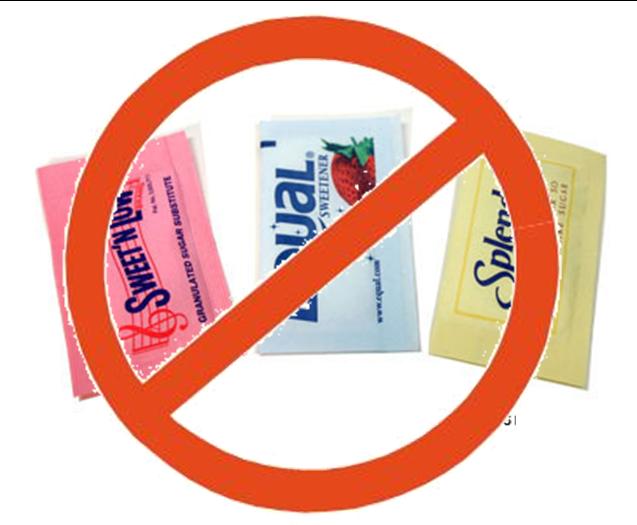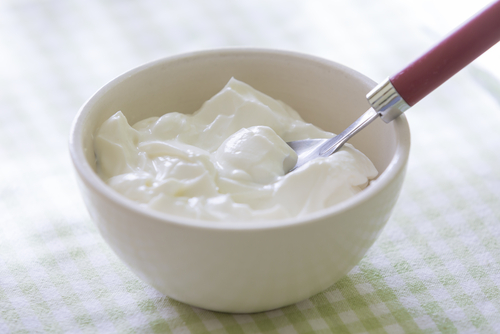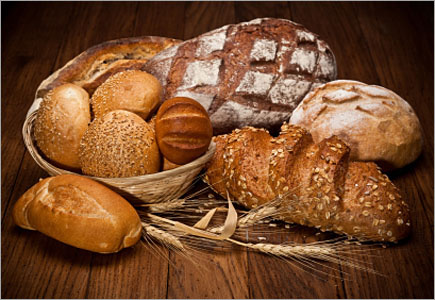Whenever we find ourselves going through post-traumatic over-indulgence disorder (i.e. post-holiday meals) we turn to the world of diet foods to overcome the guilt of overeating. In fact, diet foods have become such an integral part of our lives that most college students consume some kind of diet food on a daily basis: be it putting non-fat yogurt in cereal, drinking diet coke or only eating steamed broccoli for dinner. Although these eating habits can lead to healthier lives, there are a few facts about diet foods that we should keep in mind whenever we opt for the “skinnier” alternatives to foods with fat and carbohydrates.
1. Artificial sweeteners make you crave sugar.

Photo courtesy of Awakentheabs
It is true that there are 150 calories worth of pure sugar in a can of Coca-Cola. However, by opting for its diet alternative, you are consuming a large amount of an artificial sweetener called aspartame. Its health risks aside (studies show that these kinds of sweeteners can be carcinogenic), sweeteners also increase your insulin levels. When your body has a normal level of insulin the hormone regulates blood sugar, however, excess amounts of it make you crave sugar. If you are one of those people who drinks a large cup of diet coke with every meal, it is likely that your body will ask for more and more dessert. So, what’s the solution? Instead of drinking diet coke, drink regular coke, but watch the amount. A cup of coke once a week is a better alternative to a diet coke at every meal, giving you the satisfaction of sweetness without making you a sugar addict.
2. Non-fat yogurt makes you eat more.

Photo courtesy of DrComfort
While non-fat foods indeed have fewer calories, they are also much less filling and will make you feel hungrier much quickly. On the other hand, full-fat yogurt will keep you full for hours. The rule for coke applies here as well: eat the original, non-skimmed food, but be careful with portion size. Consuming a little bit of fat is actually good for your body, and it does not cause fluctuations in your blood sugar levels. So, eat full-fat, but eat less.
3. Eating too many raw vegetables (and not enough bread) increases your stomach acid.

Photo by Tori Robertson
Diets often consist of consuming salads and avoiding bread or similar sources of starch. The reality is, eating only raw vegetables in your meals will increase the amount of acid in your stomach (if you ever felt like your stomach is eroding after a very light meal or a gaseous drink, you know what I’m talking about). This increase in acid makes you crave more food. Make sure to eat a little bit of bread or throw in some quinoa with your salad because it will alleviate the acidity of the vegetables and make your tummy happy.
4. Eating big portions of calorie-free food “inflates” your stomach.

Photo by Lynden Orr
You might think that eating three plates of salad in a meal would not cause any harm, as cucumbers and lettuce have pretty much no calories. While this is true, a large portion of any food increases the size of your stomach. This means that if you spend every meal eating four pounds of greens, your stomach will ask for more and more food at every meal. You’ll need more to satisfy your hunger and end up consuming larger amounts of food. Sometimes eating half a slice of that delicious cheesecake might be better than eating three plates of raw veggies in the long run.
5. Whole grain bread is good for you, but it’s not calorie free.

Photo courtesy of Riverside
While whole grain bread is healthier than white bread, it is not necessarily “skinnier.” In some cases, a slice of the former can actually have more calories than a slice of the latter. This is not to say that you should go for white bread: whole grain is still the more wholesome, filling and digestive system-friendly option. However, the carbs in whole grain foods, when consumed in excess, still have the potential to make you add on a few pounds. If you are looking for a healthy, low-calorie alternative to your regular whole grain bread, you can check out this bread.
So, the takeaway here is if you want to control your weight and have a healthy diet, the best way to go about is probably eating smaller portions of wholesome foods rather than choosing diet foods. Diet foods might not be satisfying and can even be harmful thanks to things like artificial sweeteners. Still, always keep in mind the golden rule: everything in moderation.
Check out these other health tips:
22 Comfort Food Dishes You’ll Forget Are Actually Healthy

